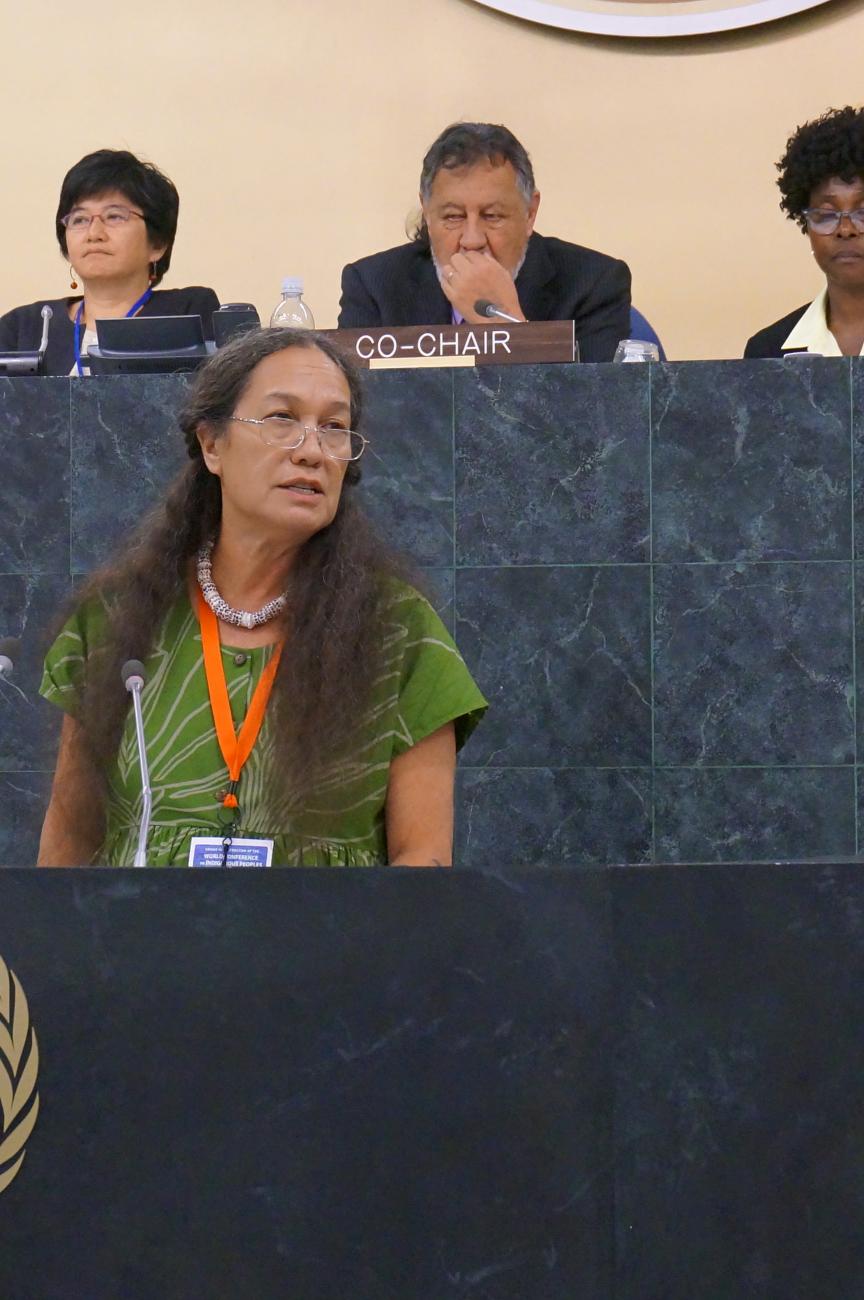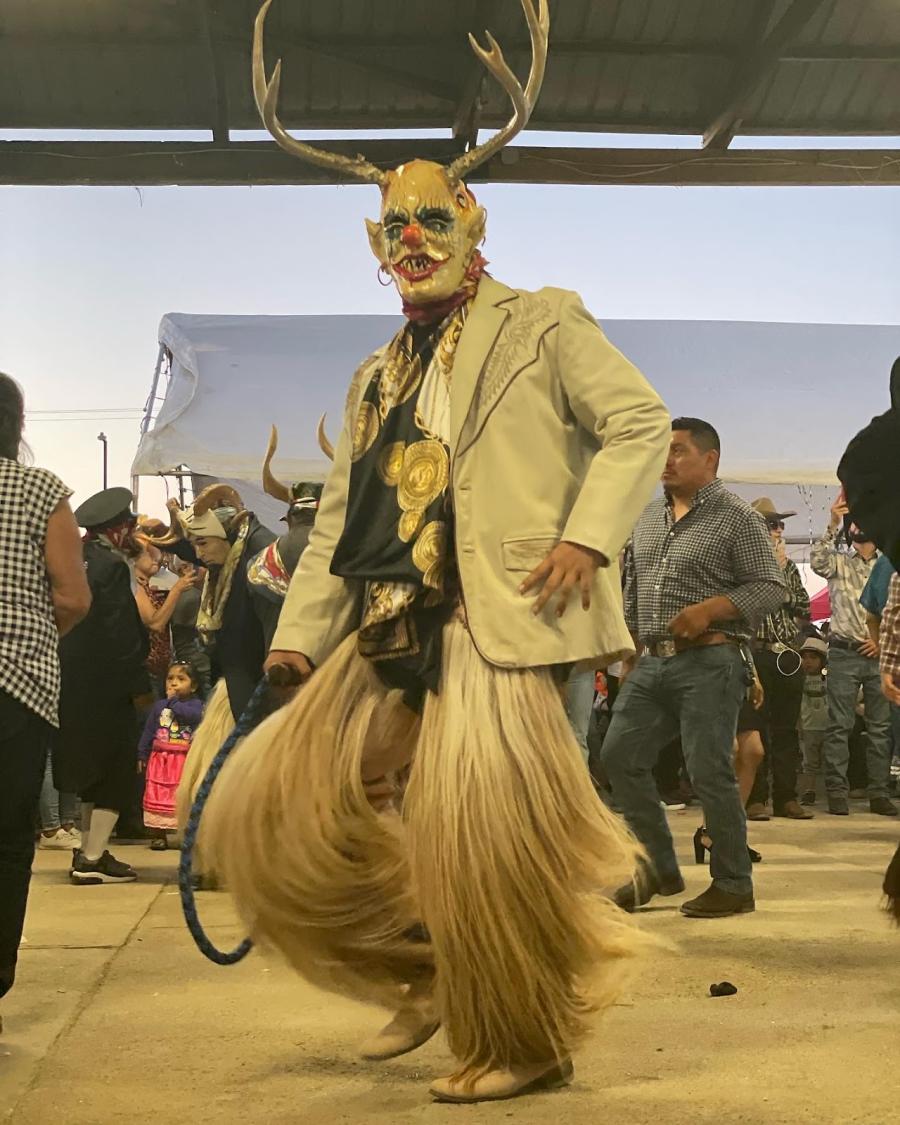
By Madeline McGill
The World Conference on Indigenous Peoples (WCIP) ended September 23rd, concluding a two-day United Nations summit dedicated to the discussion of issues concerning Indigenous People on a global scale.
The final day of the conference included a roundtable and panel discussion on Indigenous peoples lands, territories and resources; followed by a closing planetary meeting consisting of summaries by roundtable and panel Chairs.
A highly anticipated conference, WCIP aimed to unite Member States towards a common goal of recognizing the rights and diverse cultures of their respective Native populations. This was accomplished with an Outcome Document, which set guidelines for the creation and implementation of Indigenous policy.
“The outcome document from the World Conference will be a major tool to pin down governments to implement the UN Declaration on the Rights of Indigenous Peoples (UNDRIP),” said Vicky Tauli-Corpuz, Special Rapporteur on the rights of Indigenous peoples.
Many questions surrounded the Conference, leading up to its opening and now after its conclusion. Many Indigenous representatives were concerned that they were not sufficiently included in the creation of the Outcome Document; while others worried that the Conference would bring little success in furthering the 2007 UNDRIP.
The concern that Indigenous representatives lacked a sufficient voice at WCIP caused the high profile withdrawal of the North American Indigenous’ Peoples Caucus’ from attendance, and their subsequent request for the conference to be cancelled.
While indirectly involved in the drafting of the Outcome Document, Indigenous representatives made their recommendations known in the creation of the Alta Outcome Document in 2013 (http://www.wcip2014.org/wpcontent/uploads/2013/06/Adopted-Alta-outcome-document-with-logo-ENG.pdf). This was a set of policy ideals for Member States to consider during the drafting process of the Outcome Document during this week’s conference.
The Alta Document’s proposals were divided into three high-priority themes for Indigenous Peoples:
- Indigenous People’s lands, territories, resources, oceans and waters
- UN system action for the implantation of the rights of Indigenous Peoples
- Implementation of the Rights of Indigenous Peoples
Some of the recommendations from the Alta Outcome Document were upheld in the Conference’s Outcome Document, while others were altered or left out. The final version maintained a focus on indigenous women, youth, and persons with disabilities. However, it included less regarding representatives desire to establish a UN mechanism for implementing Treaties and other agreements between Indigenous Nations and States, one of the main themes of the Alta Document.
The Indian Treaty Council released in a September 22nd statement that while they applauded aspects of the Outcome Document, they felt “regret that the final WCIP Outcome Document did not include a specific reference to the development of an international oversight mechanism for the observance of Treaties, Agreements and other Constrictive Arrangements.”
That is not to say that the Outcome Document is not beneficial for the advancement of Indigenous Rights. On the contrary, WCIP served as a historic gathering of representatives and Member States devoted to addressing a global population that has gone for too long under-served. Many attendees expressed their renewed belief that the Outcome Document was crucial in the further implementation of UNDRIP. Including Deputy Secretary-General Jan Eliasson:
“Now it is our collective responsibility,” he said, “Member States, Indigenous Peoples, UN agencies, funds and programmes, civil society and others – to transform the Declaration on the Rights of Indigenous Peoples into reality. This requires determination, tenacity, political will, appropriate legal framework, and human and institutional capacities.”
Furthering Indigenous rights will be no small task for any of the Member States present at WCIP. However, the gathering of people, Indigenous and non-Indigenous alike, has done much to renew the hope that continued efforts will be met with end rewards. The conclusion of WCIP has helped to point Member States in the right direction, in the hope that they will continue to seek guidance and recommendation from their Indigenous populace.
As stated by Ghazali Ohorella, speaking at the closing plenary session in summary of roundtable 1: "It is clear that Indigenous Peoples' lands in Indigenous Peoples hands will lead to their own development."



